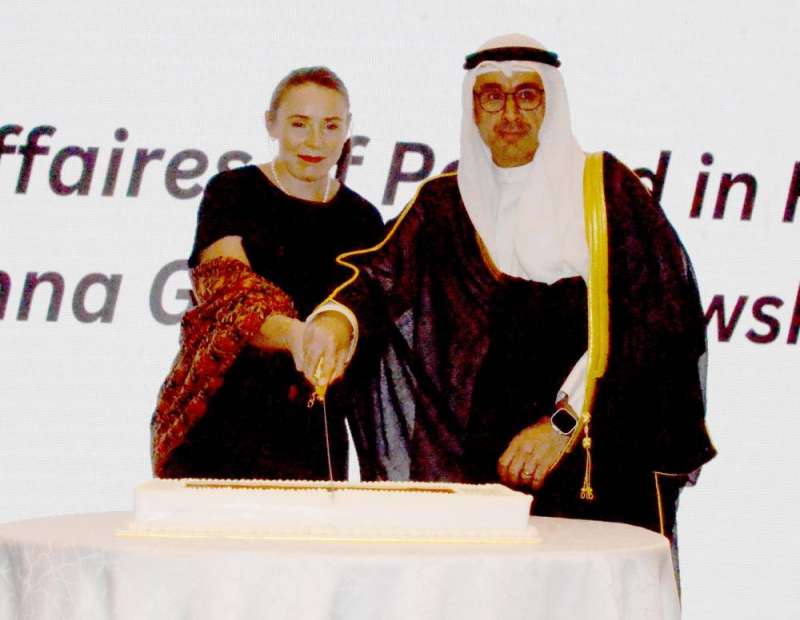17/11/2023
17/11/2023

KUWAIT CITY, Nov 17: The Charge D'Affaires of the Embassy of Poland in Kuwait, Anna Marta Godowy Czeszkowska, says, "After a four-year hiatus due to the COVID-19 pandemic, we are pleased to resume this cherished celebration outside the embassy, which symbolizes our collective resilience and enduring spirit."
On the occasion of Poland's national celebration, she said, "This occasion and our celebration of November 11 is a testimony to the sacrifices of generations that strived for Poland's independence. Despite the absence of 123 years from the world map, the dream of freedom prevailed, with the end of World War I on the occasion of the rebirth of our country.
Re-establishing the state after 123 years of partition was a complex endeavor. Despite not having an independent country for more than a century, the resilience of Polish identity remained constant, maintained by the unyielding spirit of Polish society throughout this period of repression. Each generation of young Poles inherited a deep connection to their national language, culture, and traditions.
This enduring spirit of national identity is encapsulated in the poignant words of our national anthem - Poland is not dead yet, as long as we are still alive."
Czeszkowska expressed her hopes and solidarity with Ukraine, saying, "They are fighting bravely for the sovereignty of their nation, and we believe that they will soon celebrate the joys of independence. At the same time, Poland is dedicated to promoting global peace initiatives, especially in Palestine."
She went on to say, "Recognizing the urgent humanitarian needs, we have allocated PLN 1 million to fund the United Nations Relief and Works Agency for Palestine Refugees (UNRWA), demonstrating our support for these vital peacekeeping efforts."
Czeszkowska affirmed that the historical relations between Poland and Kuwait are deeply rooted and multifaceted, as one of the prominent examples of early interaction is the trip of the Polish nobleman Wacław Seweryn Rzewuski to the Arabian Peninsula in the 19th century, which began as a short visit and developed into a long stay in the region.
She explained that Rzewski's memoirs, rich with detailed accounts of the people he encountered, the places he explored, and his comprehensive study of Arabian horses, are invaluable historical documents. His life and writings create a distinctive bridge between the Polish and Arab worlds, demonstrating that these cultures have deep, multi-layered connections despite obvious differences.
Czeszkowska said, "Last year, with the support of the National Council for Culture, Arts and Letters (NCCAL), we displayed an exhibition in Kuwait about Rzewski’s interactions in the region and his studies of Arabian horses. The exhibition gained great interest, further highlighting the depth and intrigue of our shared history.
This year is an important milestone as we celebrate the 60th anniversary of diplomatic relations between Poland and Kuwait, which is evidence of the exceptional cooperation between our two countries. In line with this celebration, we are pleased to conclude new agreements that further strengthen our bilateral relations.
Regarding the enduring nature of our cooperation, one notable example is the joint archaeological mission in Subiya and Failaka Island. This project has been operating successfully for nearly twenty years.
In addition, we are proud to facilitate a training program in Poland for students from the Kuwait Coast Guard. We also look forward to strengthening cooperation between Poland and Kuwait and continuing to develop our bilateral relations in various other fields."


